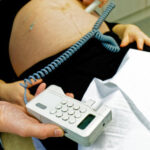Are you wondering how long you should wait before taking a pregnancy test? Whether you are actively trying to conceive or suspect that you might be pregnant, understanding the timing for testing is crucial. Knowing when to take a pregnancy test can greatly impact the accuracy of the results and avoid unnecessary disappointment or confusion.
The question of how soon one can take a pregnancy test is often on the minds of many women who are eagerly awaiting confirmation of their pregnancy status. It is essential to have a clear understanding of the factors that influence the optimal timing for testing in order to achieve reliable results. From early signs of pregnancy to various types of tests available, there is much to consider when deciding the right moment for taking that all-important test.
In this article, we will delve into how pregnancy tests work, early signs of pregnancy to watch out for, and the different factors that play a role in determining when to take a pregnancy test. By adhering to recommended wait times and following tips for accurate testing, individuals can better navigate this critical stage with confidence and peace of mind.
Understanding How Pregnancy Tests Work
Pregnancy tests work by detecting the presence of human chorionic gonadotropin (hCG) in a woman’s urine or blood. This hormone is produced by the placenta shortly after a fertilized egg attaches to the uterine lining. The level of hCG increases rapidly in early pregnancy, doubling every 48 to 72 hours. Most over-the-counter pregnancy tests are designed to detect hCG levels as low as 25 mIU/ml, making them very sensitive and able to provide accurate results.
When taking a pregnancy test, it is essential to follow the instructions carefully to ensure accurate results. Typically, a woman will either urinate on a test strip, place it directly into her urine stream, or dip it into a cup of collected urine. Results usually appear within a few minutes, with most tests displaying two lines for a positive result and one line for a negative result. Some digital tests may also display “pregnant” or “not pregnant” for easier interpretation.
To further understand how pregnancy tests work, here are some key points to consider:
- hCG levels: Understanding how hCG levels increase in early pregnancy
- Test sensitivity: Differences in sensitivity among various pregnancy test brands
- Timing of testing: The importance of testing at the right time for accurate results
Overall, knowing how pregnancy tests work can help women navigate through the process with more knowledge and confidence. It is crucial to wait for the recommended time before taking a pregnancy test to increase the likelihood of obtaining accurate results that can guide future decisions and actions related to potential pregnancies.
Early Signs of Pregnancy to Look Out For
Early signs of pregnancy can vary from woman to woman, but there are some common symptoms that may indicate a possible pregnancy. If you are trying to conceive or suspect that you may be pregnant, it’s important to pay attention to your body and any changes you may be experiencing. Here are some early signs of pregnancy to look out for:
- Missed period: One of the most obvious signs of pregnancy is a missed period. If your menstrual cycle is regular and you have missed a period, it may be time to consider taking a pregnancy test.
- Breast tenderness: Many women experience breast tenderness or swelling as an early sign of pregnancy. Your breasts may feel more sensitive or heavier than usual.
- Fatigue: Feeling unusually tired or exhausted even after a full night’s sleep can also be an early indication of pregnancy. Hormonal changes in the body during pregnancy can cause fatigue.
It is crucial to remember that these symptoms can also be caused by other factors such as stress or hormonal imbalances, so it’s essential not to rely solely on these signs for confirmation of pregnancy. If you are experiencing any of these symptoms and suspect you may be pregnant, it’s best to take a pregnancy test to get a clear answer.
When considering how long should you wait before taking a pregnancy test, it’s important to keep in mind the sensitivity of the test being used. While some tests can detect hCG levels as early as 7-10 days after conception, others may require waiting until after a missed period for accurate results.
It is generally recommended to wait at least one week after your missed period before taking a home pregnancy test for the most reliable results. Remember that testing too early can result in false negatives due to low hCG levels in the early stages of pregnancy.
Factors That Influence When to Take a Pregnancy Test
Menstrual Cycle Regularity
One of the main factors that influence when to take a pregnancy test is the regularity of your menstrual cycle. If you have a regular cycle, typically lasting between 28-30 days, it is easier to predict when to take a pregnancy test.
For those with irregular cycles, it may be more challenging to determine when the best time to test is. In general, it is recommended to wait at least one week after your missed period before taking a pregnancy test for accurate results.
Method of Conception
The method in which conception occurred can also impact when you should take a pregnancy test. For those who are actively trying to conceive and tracking ovulation, it may be possible to detect a positive result on a pregnancy test as early as 7-10 days past ovulation. However, for individuals who are not actively tracking their fertility window, waiting until after a missed period is typically recommended for more accurate results.
Previous Pregnancy Test Results
If you have taken a pregnancy test previously and received a negative result but continue to experience symptoms of early pregnancy, it may be advisable to wait a few more days before retesting. This can help ensure that there is enough hCG hormone in your system for the test to detect accurately. It is important not to rush into taking multiple tests in quick succession as this can lead to confusion and potentially false results.
Recommended Wait Time Before Taking a Pregnancy Test
The recommended wait time before taking a pregnancy test is an important factor to consider when determining the accuracy of the results. It is essential to understand that testing too early could lead to false negatives, which can be disappointing and confusing for individuals trying to conceive.
Generally, pregnancy tests detect the hormone hCG (human chorionic gonadotropin), which is produced by the placenta after implantation occurs. For this reason, it is crucial to wait until there is a sufficient level of hCG in your system for the test to detect.
Medical professionals typically advise waiting at least one week after a missed period before taking a pregnancy test for the most accurate results. However, some sensitive pregnancy tests on the market claim to detect hCG levels earlier, even before a missed period. It is important to note that testing too early may not provide reliable results, as hCG levels vary among individuals and may not be detectable in urine immediately after conception.
To avoid potential false negatives and unnecessary anxiety, it is best to follow the instructions provided with the specific pregnancy test you choose. If you suspect you might be pregnant but receive a negative result from an early test, consider waiting a few more days and retesting. Consulting with a healthcare provider can also offer guidance on when to take a pregnancy test based on your unique circumstances.
| Recommended Wait Time Before Taking a Pregnancy Test | Importance |
|---|---|
| At least one week after a missed period | To ensure accurate and reliable results |
| Following instructions of specific tests | To maximize accuracy based on sensitivity levels |
Different Types of Pregnancy Tests Available
The availability of various types of pregnancy tests in the market can sometimes be overwhelming for individuals who are trying to confirm their pregnancy. Understanding the differences between these tests can help in making an informed decision on which one to choose. The most common types of pregnancy tests include urine tests, blood tests, and digital tests.
Urine tests are the most readily available and affordable option for most women. These tests detect the presence of hCG hormone in the urine, which is only present if a woman is pregnant.
Blood tests, on the other hand, are usually conducted at a healthcare provider’s office and can detect pregnancy earlier than urine tests as they measure hCG levels more accurately. Digital tests provide a clear result in words such as “pregnant” or “not pregnant,” eliminating any confusion that may arise from interpreting lines.
It is important to note that regardless of the type of test chosen, accuracy may vary depending on how soon after conception it is taken. Understanding how long you should wait before taking a pregnancy test can significantly impact its reliability. In general, it is recommended to wait until at least a week after a missed period to take a test for more accurate results. However, certain early detection tests claim to provide results even before a missed period.
Tips for Accurate Pregnancy Testing
When it comes to taking a pregnancy test, accuracy is key in order to ensure reliable results. Here are some important tips to keep in mind when you are preparing to take a pregnancy test:
Choose the Right Time of Day
It is generally recommended to take a pregnancy test in the morning when your urine is more concentrated. This can help increase the accuracy of the test results. However, some newer tests claim to be able to detect pregnancy hormones at any time of the day, so be sure to read the instructions on the test you choose.
Follow the Instructions Carefully
Each pregnancy test comes with specific instructions on how to use it properly. Make sure to read and follow these instructions carefully in order to get an accurate result. Some common mistakes include not holding the test stick in your urine stream for long enough or reading the results too soon or too late.
Avoid Excessive Fluid Intake Before Testing
Drinking large amounts of fluids before taking a pregnancy test can dilute your urine and potentially affect the accuracy of the results. It is best to avoid excessive fluid intake for a few hours before testing in order to ensure that your urine is not overly diluted.
By following these tips, you can increase the likelihood of getting accurate results when taking a pregnancy test. Remember that if you have any concerns about whether or not you may be pregnant, it is always best to consult with a healthcare provider for further guidance and support.
What to Do if the Test Results Are Unclear or Unexpected
If the results of your pregnancy test are unclear or unexpected, it is important to remain calm and consider a few key steps to ensure an accurate understanding of your situation. One factor that can lead to unclear results is taking the test too early in the pregnancy process. As mentioned earlier, different types of tests have varying levels of sensitivity, so it is important to follow the instructions provided with the test kit regarding when to take the test.
If you receive a negative result but are experiencing symptoms of pregnancy, it may be worth retesting after a few days or consulting with a healthcare provider for further guidance. On the other hand, if you receive a positive result and were not expecting to be pregnant, it can be startling and overwhelming. In this case, it is recommended to confirm the results with another test or seek medical advice as soon as possible.
It is also important to consider external factors that could impact the accuracy of your test results, such as medications or medical conditions that may interfere with hormone levels. Ultimately, if you find yourself in a situation where your pregnancy test results are unclear or unexpected, seeking support from healthcare professionals can provide clarity and guidance on next steps.
Conclusion
In conclusion, the timing of when to take a pregnancy test plays a crucial role in ensuring accurate results. It is important to wait for the recommended period before testing to avoid false negatives and unnecessary confusion. Understanding how pregnancy tests work and being aware of the factors that can influence the accuracy of the results will help individuals make informed decisions about when to take a test.
Additionally, paying attention to early signs of pregnancy and knowing when it is appropriate to test can alleviate anxiety and provide clarity in such an important moment. By following the guidelines for waiting before taking a pregnancy test, individuals can better prepare themselves emotionally and mentally for whatever outcome may arise.
Ultimately, if the test results are unclear or unexpected, it is crucial to seek medical advice promptly. Healthcare professionals can provide guidance, support, and further testing if necessary. Remember that taking a pregnancy test is just one step in the journey towards understanding your reproductive health, so it is important to stay informed, be patient, and prioritize your well-being throughout the process.
Frequently Asked Questions
How Soon Will a Pregnancy Test Read Positive?
A pregnancy test can read positive as early as 10-14 days after conception, depending on the sensitivity of the test. It is recommended to wait until you miss your period for accurate results.
Can You Detect a Pregnancy at 1 Week?
It is highly unlikely to detect a pregnancy at just 1 week after conception. Most women won’t experience pregnancy symptoms until later in their first trimester, which is closer to the 4-6 week mark.
How Long Do You Have to Be Pregnant Before a Test Is Accurate?
For an accurate result, it is best to wait until you have missed your period or about two weeks after conception before taking a pregnancy test. Testing too early may result in a false negative due to low levels of the pregnancy hormone hCG.

Welcome to my fertility blog. This is a space where I will be sharing my experiences as I navigate through the world of fertility treatments, as well as provide information and resources about fertility and pregnancy.





